Neuroscience
-
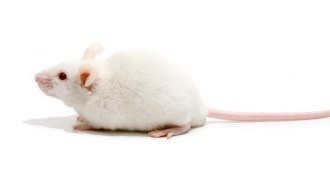 Neuroscience
NeurosciencePain curbs sex drive in females, but not males
When in pain, female mice’s interest in sex takes a hit but males still want to mate.
-
 Neuroscience
NeuroscienceBingeing rats show the power of food habits
Rats allowed to binge on sweetened milk show a bad habit for food. But while food might change our habits, a bad food habit may not necessarily be an addiction.
-
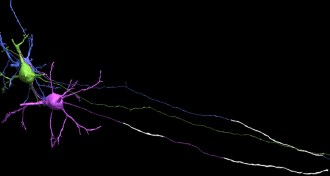 Life
LifeInsulating sheath on nerve cells isn’t an even coat
Myelin doesn't evenly coat axons, a finding that runs counter to what scientists suspected.
-
 Neuroscience
NeurosciencePoor slumber is bad for young flies’ brains
A child's sleep deprivation could alter brain development and adult behavior, a study of fruit flies suggests.
-
 Neuroscience
NeuroscienceEven with rest, brain changes linked to football linger
The offseason may not allow enough time for football players' brains to heal from hard hits.
-
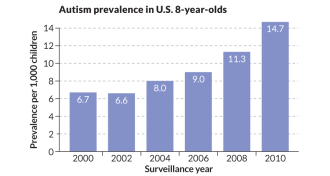 Neuroscience
NeuroscienceWhat’s behind rising autism rates
Better diagnosis may be driving a recent spike in autism.
-
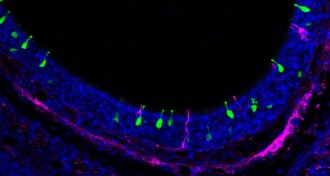 Neuroscience
NeuroscienceSmell wiring gets set early
Mess with a baby mouse’s olfaction for too long and neurons never recover.
-
 Humans
HumansFather’s obesity linked to autism in children
A father-to-be’s body mass may be a greater risk factor for his child’s development of autism than the body mass of the mother.
-
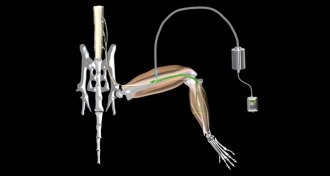 Neuroscience
NeuroscienceParalyzed mouse legs move with burst of light
Neural patch makes leg muscles twitch in paralyzed mice when blue light shines.
-
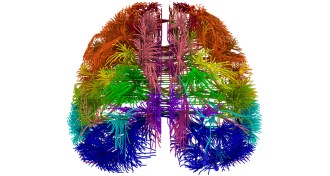 Neuroscience
NeuroscienceBrain’s growth, networks unveiled in new maps
Two large-scale efforts describe human and mouse brains in detail.
-
 Neuroscience
NeuroscienceLost sleep could mean lost neurons
A new study shows we may not be able to make up for chronic sleep deprivation. The protein SirT3 might protect us against late nights, but all-nighters may produce neuron loss.
-
 Psychology
PsychologyTwenty-two emotions are written on our faces
People’s faces express at least 22 feelings – far more than the six emotions scientists previously recognized.
By Meghan Rosen